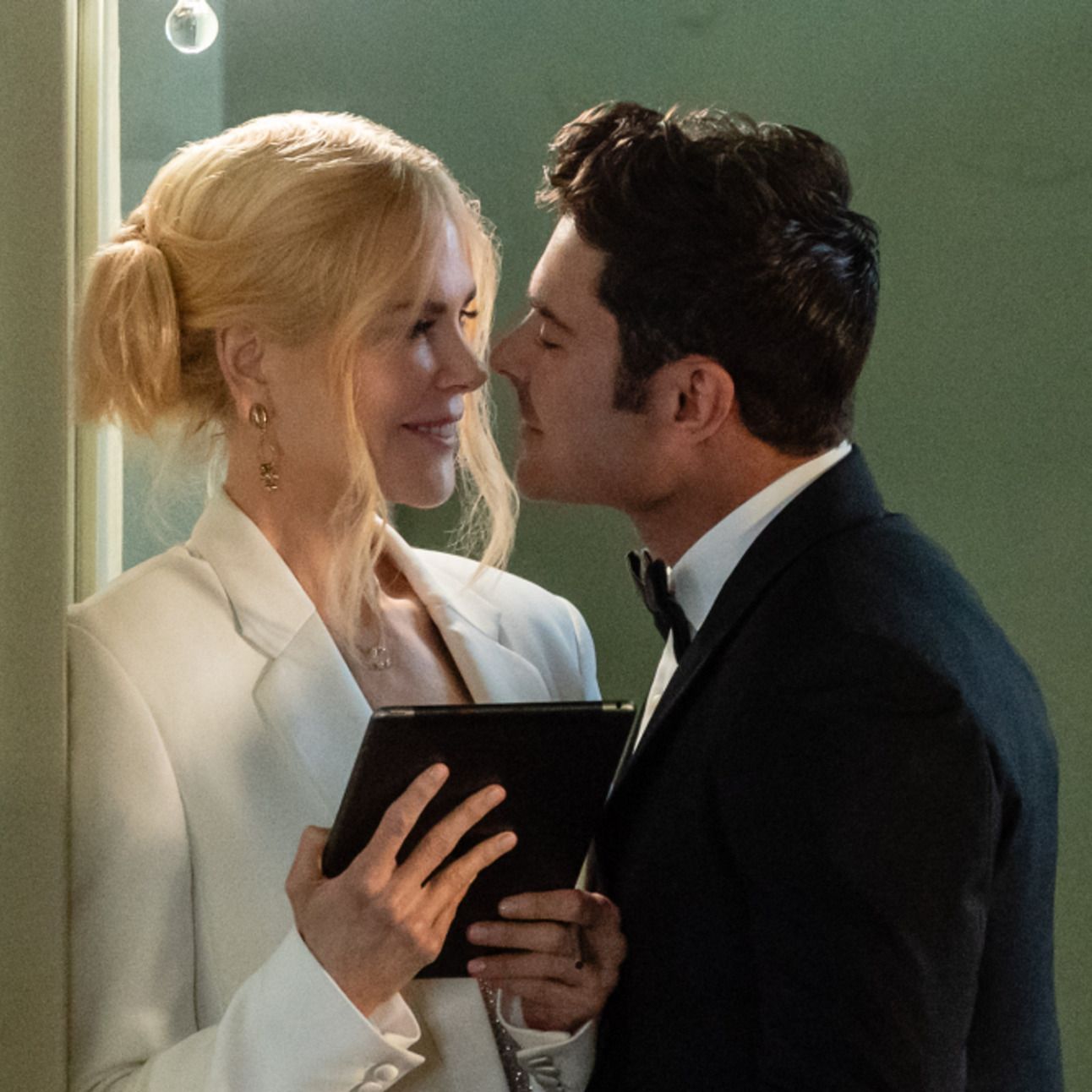- The Knowledge
- Posts
- The oddest of oddball billionaires
The oddest of oddball billionaires
🐆 Cougar renaissance | 🚓 Presidential rides | 🙊 Bubbles trouble
Books

Akio Kon/Bloomberg/Getty
The oddest of oddball billionaires
Of all the “oddball billionaires”, says Adrian Wooldridge in Bloomberg, Masayoshi Son is perhaps the “oddest”. The founder of Japanese tech conglomerate Softbank, he signs his emails “Big Boss” and happily travels 6,000 miles for lunch with someone he has only read about (always taking a bottle of his favourite wine, Domaine de la Romanée-Conti). He lives in the largest house in Tokyo, and has a $117.5m estate in California. In his 28th-floor office there is a “Putin-sized” desk, along with three trees symbolising spring, summer and autumn, “their leaves exquisitely hand-painted to capture the changing seasons”. His big passion outside work is golf: he has an artificial course in his house that can “mimic the playing conditions of any of the world’s greatest courses”.
As Lionel Barber notes in his “first-rate” biography, Son has “made and lost more money than any man alive”. He became the world’s richest man by introducing Western tech – computers, floppy disks and later online services – to Japan, only to lose 97% of his fortune in the dotcom crash. He didn’t stay down for long. Known for snapping things up without bothering with due diligence, he once wrote a $4bn cheque to WeWork founder Adam Neumann after listening to his pitch “in the back of his car on the way to a meeting with Donald Trump”. He raised billions by beguiling Saudi Arabia’s Crown Prince Mohammed bin Salman, who flew an entourage to Japan in a fleet of “no fewer than 13 planes, two of them A380 jumbos”. When one of Son’s investors asked him why he couldn’t run his chaotic companies more like Bill Gates or Mark Zuckerberg, he disdainfully replied that they were “one business” guys. “I control the entire ecosystem,” he said. “These are not my peers. The right comparison for me is Napoleon or Genghis Khan.”
Gambling Man: The Wild Ride of Japan’s Masayoshi Son by Lionel Barber is available to buy here.
Property

THE RESERVOIR Set within six acres in rural Kent, this spectacular five-bedroom house was originally built in the 1930s as a reservoir and later converted into a modern home. An enormous open-plan living room, kitchen and dining area dominate the ground floor, which is flanked by the bedrooms and a large studio space. An open-tread staircase leads up to another living area with panoramic views and a large terrace. There is a 25-metre lap pool outside and parking for several vehicles. Headcorn Station is a 15-minute drive, with trains to London in less than an hour. £3.25m.
Quirk of history

The end of a “golden age” at the White House
The keys to the Oval Office come with quite the company car, says Jeremy Taylor in The Daily Telegraph: a £1.2m Cadillac known as The Beast. The nine-ton behemoth has several nifty security features, including three inches of bulletproof glass and eight inches of armour; a tear gas dispenser; and door handles that can be electrified to shock any would-be intruders. Inside there is a comms system that enables the commander-in-chief to launch a nuclear attack from the comfort of the back seat. And there’s also a mini-fridge – stocked not with Moët & Chandon, as in most decent limos, but with a fresh supply of the president’s blood.
Presidential travel hasn’t always been this hi-tech. In 1901, Theodore Roosevelt snubbed a “steam car” in favour of a horse-drawn carriage. His successor, William Taft, “saw the writing on the wall” and converted the White House stables to garages. Woodrow Wilson got around in a dashing 1919 Pierce-Arrow, which he then bought from the government for $3,000 when he left office in 1921. The first car built exclusively for presidential use, a 1939 Sunshine Special Lincoln complete with a two-way radio, was given to Franklin D Roosevelt, who was also the first leader to use an armoured vehicle – a Cadillac 341A, seized from gangster Al Capone after a tax evasion case. President Truman’s car, a Lincoln Cosmopolitan, had seven inches of extra headroom built in so it could accommodate the on-trend tall silk hats of the time. It was only after JFK’s assassination in his Lincoln Continental in 1963 that the Secret Service made open-top vehicles verboten, ending the “golden age of state cars”.
Advertisement
ALLIANCE WITAN. WIDENING YOUR COMFORT ZONE
Now Witan has joined with Alliance trust, there’s an even less stressful way to invest in global equities. The combined trust will boast around £5bn in assets and employ the same investment approach as Alliance Trust. An approach designed to beat inflation and drive returns through capital growth and a rising dividend. Calling on the skills of ten top fund managers, each choosing 10-20 of their most exciting ideas to package into the trust. But thanks to economies of scale, costs will be lower and the new trust will also aim to generate higher dividends than before.
Invest without leaving your comfort zone, at alliancewitan.com.
Love etc

Nicole Kidman and Zac Efron in A Family Affair
We’re in the midst of a “cougar-naissance”, says Emma Beddington in The Guardian. There have been several recent movies about middle-aged women being “absolute horndogs”: Nicole Kidman’s character in A Family Affair has a fling with her daughter’s boss; in The Idea of You, Anne Hathaway plays a mother who starts sleeping with a boyband star after meeting him with her teen daughter; and in Babygirl, also starring Kidman, a CEO has a “torrid” affair with an intern. The title of TLC’s reality TV show Milf Manor speaks for itself. And it’s not just on screen: Miranda July’s novel All Fours is an “explosion” of midlife lust – solo and reciprocal. Of course, it’s wonderful to see women enjoying the desire that “post-reproductive life” can bring. But I have to say, all that shagging sounds like a lot of hard work. The kind of endeavour that requires free time, a sense of adventure, “and a degree of athleticism that 45 minutes of Body Pump once a fortnight probably won’t provide”.
Life

Jones at the 24th Annual Grammy Awards in 1982. CBS/Getty
From robbing houses to working with Frank Sinatra
When Quincy Jones produced Michael Jackson’s Thriller, he had more to deal with than the singer’s “notorious caprices”, says The Times. The legendary producer and composer, who died this week aged 91, also had to manage the menagerie Jackson brought with him to the studio. The singer’s pet chimpanzee, Bubbles, “bit Jones’s daughter”; his snake, Muscles, liked to slide across the console and coil itself around legs. One day, the snake went missing. “We went downstairs and Muscles was in the parrot cage,” Jones recalled. “He had just eaten the parrot.” Despite the “zoological chaos”, Thriller went on to become the best-selling album of all time and earned Jones a Grammy – one of 27 he won over a career working with the likes of Frank Sinatra, Aretha Franklin, Miles Davis and Stevie Wonder.
Growing up on Chicago’s South Side with an abusive stepmother and a father who worked for gangsters, Jones looked set for a life of crime. But at 10 years old, everything changed when he discovered a piano in a property he was robbing. “When I touched the keys every cell of my body said: ‘This is what you’re going to do for the rest of your life’.” He moved to Seattle, formed a band with Ray Charles at 14 and won a scholarship to music school, soon establishing himself as the hottest “back-room” man in the industry. Yet despite spending his life surrounded by stars, he had no time for narcissism. When he corralled the biggest musicians of the day to record 1985’s We Are the World, he pinned a sign to the studio entrance that read: “Check your ego at the door.”
🥁😬 There was one act Jones didn’t enjoy working with, says David Marchese in Vulture: The Beatles. He called the band “the worst musicians in the world”, in particular Paul McCartney (“the worst bass player I ever heard”) and Ringo Starr (“don’t even talk about it”). During one session, Jones recalled, Starr was playing so badly that he sent him off for a break and secretly brought in another drummer to do the recording. When Starr returned and heard the new version, unaware that it wasn’t his own, he said it didn’t sound too bad. “Yeah, motherfucker,” Jones told him, “because it ain’t you.”
Quoted
“Humour can get in under the door while seriousness is still fumbling at the handle.”
GK Chesterton
That’s it. You’re done.
Let us know what you thought of today’s issue by replying to this email
To find out about advertising and partnerships, click here
Been forwarded this newsletter? Sign up for free
Enjoying The Knowledge? Click to share


Reply